Motherhood is not a monolith
9 books that explore motherhood in all its tenderness and cruelty
“Seeing someone with a child tells me nothing about the life that was in their head, or is currently in their head, just as seeing someone without a child tells me nothing about the life that was in their head.”
Sheila Heti - Motherhood
I have always resisted writing in any detail about my own mothering. It is shape-shifting and tender - more so than ever in these postpartum times. I am a raw nerve, a blister waiting to pop. But for all my reservations when it comes to relating my own experience of motherhood, I love reading about that of others: women who love it, women who regret it, women who yearn for it, women who are ambivalent towards it. The personal, after all, is deeply political.
I bought Soldier Sailor by Claire Kilroy after reading one rapturous review. (A great review doing what a great review should.) Soldier is a woman speaking to her son, Sailor, in the first few years of his life. She’s exhausted, lonely, deeply in love with her son. It’s exquisitely written and full of dichotomy (as parenthood is): lacerating and gentle; delighted and disappointed; tiny yet huge.
I gulped it down in 24 hours. It’s my favourite book I’ve read this year and I’ll be writing about it for the first Book Report next week (my new segment for paid subs!) To whet your appetite, here’s a conversation Soldier has with a dad-of-three she bumps into in the park, about their past selves:
“Do you remember the old days?’ I asked him.
An instant smile. ‘I remember the old days.’
‘They were exciting. Do you remember the exciting people?’
‘I do! I remember the exciting people. The people doing exciting things.’
‘Wearing ironical clothes.’
‘Yes! Those clothes they wore were ironical.’
‘Where did they all go? The exciting people doing the exciting things wearing ironical clothes? It’s like I dreamt them.’
‘Wait, weren’t we doing the exciting things?’
‘We were! Those things we did were exciting!’
…
‘Look at the cut of us now.’
Reading Soldier Sailor got me thinking about other books on motherhood. So here are *8 more books* that that explore motherhood in all its tenderness and cruelties; its many bounties and evisceration. Let me know your faves!
Intimacies by Lucy Caldwell I vividly remember where I was when I started reading this collection of 11 stories: in a rapidly cooling bath, shortly after I had given birth to my first son. It’s my favourite collection on motherhood. Caldwell’s prose is so perceptive and poetic, the stories meticulously crafted skeins of tension, love and fear. “The veil between worlds, the skin closing over”. She also mixes fiction and non-fiction to brilliant effect - her chapter on Caroline Norton, the woman who reformed child custody law after losing custody of her own children, is fascinating (and devastating.)
A Life’s Work: On Becoming A Mother by Rachel Cusk This ‘mumoir’ caused an insane furore when it came out in 2001. Cusk was ahead of her time, writing about how politically invisible and isolated she felt when she became a mother; it wouldn’t be particularly controversial, I don’t think, if it were published now. What enraged people so much - what felt so radical, then - is this idea that you can experience intense love and resentment simultaneously. That you can long to run away, whilst pulling it closer - and then doing it all again. It’s a beautifully written book: single-minded, excoriating and politically-charged.
Mothers: An Essay on Love and Cruelty by Jacqueline Rose A brilliant book from a great thinker, about our urgent need to see motherhood as “one of the central means through which a historical moment reckons with itself” rather than something cute, domestic and individual. Rose condemns the idea of the mother as a scapegoat for society’s failings, whilst asking that we demand a fuller type of citizenship for ourselves:
“[O]ne in which the acute pleasure of being a mother [is permissible] without any need for denial of everything else”.
Motherhood by Sheila Heti A unique offering - a book about whether or not to become a mother, narrated by an ambivalent 37-year-old writer who takes a pragmatic and deeply analytical approach to the motivations behind procreation.
“My religious cousin, who is the same age as I am, she has six kids. And I have six books. Maybe there is no great difference between us, just the slightest difference in our faith - in what parts of ourselves we feel called to spread”.
Refreshingly unsentimental - as she seeks logic where often there is none - the only hole, if it can be called a hole, is that the narrator never once considers the possibility that she can’t have children. But perhaps this reflects the faulty and pervasive cultural assumption that all women can - and therefore should - have children. What I like the most about Motherhood is the even-handedness Heti brings to the subject, uniting mothers and non-mothers. (Here’s a recent piece that also does this well, by Lauren Bravo for Grazia.)
Holding The Baby: Sweat and Tears from the Frontline of Motherhood by Nell Frizzell A follow-up to her first memoir, The Panic Years, Frizzell writes wittily and bracingly about the slog of early motherhood - the wiping and mopping and hours hours hours of “life with a loaf-sized dictator” - which at times reminds me of Soldier Sailor. Her post-partum exhaustion turns from something pale and soft-focus to sharp edged and furious when she takes on the political dimension of motherhood, to demand that we start seeing motherhood as a job like any other and childcare as a necessity, not a luxury.
Hood Feminism: Notes from the Women White Feminists Forgot by Mikki Kendall This 2020 book of essays isn’t specifically about motherhood but the cultural critic and activist has plenty to say on the ways in which she was seen as ‘less’ of a mother because she was poor, and Black. At paediatrician appointments, the doctor would address her white husband, rather than her, despite the fact that she was the primary carer. Like Candice Brathwaite’s book, I Am Not Your Baby Mother, this book urges us to dismantle a middle-class white representation of motherhood, in favour of something more inclusive.
Breathing Lessons by Anne Tyler I found this 1980s classic painfully slow at times, but the way Tyler writes about Maggie Moran’s feeling of failed motherhood - that your children are not who you thought they would be; that you are not the mother that they hoped for - has really stayed with me.
“Daisy just sat there and studied me for the longest time," [says Maggie] "with this kind of fascinated expression on her face and then said, 'Mom, was there a certain conscious point in your life when you decided to settle for being ordinary?'"
(Elizabeth Strout also writes beautifully about this disconnect between parent and adult child, in Olive Kitteridge.)
The Cruel Mother Sian Busby In 1914, Busby’s great-grandmother gave birth to triplets. One baby died at birth and 11 days later, she drowned the other two. She was convicted of infanticide and insanity and incarcerated in Broadmoor. Whilst suffering from PND almost 100 years later, and fearful of inherited trauma, Busby began to investigate her great-grandmother’s story. I ache for tiny, exhausted Beth Busby and the women giving birth a century ago, at a time when there was no understanding of the psychological toll and emotional vulnerabilities around birth and motherhood. How far we have come. How far we have to go.
Further reading:
What Mothers Do by Naomi Stadlen
Motherhood: On The Choices of Being A Woman by Pragya Argawal
The Mother of All Jobs by Christine Armstrong
My Wild and Sleepless Nights by Clover Stroud
BITS
Well this was a useful exercise! Thank you to everyone who responded. Free subs, everything remains as is. Paid subs, you’ll be getting one less edition of The List each month and instead, ad hoc book reports sprinkled over the month. Shelf Request will continue as usual: in the latest edish, I round up 30+ memoirs and autobiographies 4 a reader looking for engaging real-life stories. Some incredible comments on this one - thank you for all your reccs.
A reminder to those of you looking for great ‘summer reads’ (hate that expression and yet cannot resist using it) that all these novels are now out.
And if you’re looking for something to sup upon while reading your new book, may I recommend this? My husband found it in our local corner shop and it’s my new fave in both taste and design.
Was totally taken in by this The New York Times interview with Elizabeth Holmes - the first she’s done since 2016 - whilst being simultaneously aware that I am being taken in. (I can’t help but feel sad for those kids.)
I was reading a terrible review of the Fatal Attraction re-make to my husband when he casually revealed that he had never seen the 1988 movie. I immediately insisted we watch it - and found it as enjoyable and shallow as it ever was (even Glenn Close has questioned why Alex’s obvious trauma is ignored in favour of the bunny boiler trope). And wOwzA, the perms.
Speaking of terrible reviews, I had to dip a toe into The Idol after Rolling Stone published this about toxic on-set behaviours. Lily-Rose Depp plays a popstar recovering from a nervous breakdown, while Abel Tesfaye (aka The Weeknd) plays the club owner/ cult leader she falls for. Early dialogue about pop’s cynical PR machine is promising (“Tomorrow I want to wake up to, like, 150 Google Alerts telling me Jocelyn's some kind of feminist hero” says Jane Adams as agent, after a sexual image of Jocelyn is leaked. “Let’s start with ‘victim’ and go from there” mutters Dan Levy as publicist. “Same difference” Adams shoots back) but Depp’s gratuitous nudity/ gusset shots/ asphyxiation scene are so grim.
A half dozen hysterical art critics may have decried the pairing of Hilda af Klint and Piet Mondrian at The Tate Modern, but the baby and I found it delightful! One calmer review smartly notes that af Klint is enjoying a revival because she looks good on social media and is not dissimilar to a lot of contemporary art (af Klint herself predicted that she’d be better appreciated in the future - she banned some of her works from being viewed for 20 years). I bristle only slightly at the thought of my love for her work being part of a trend; mostly, I am relieved to be liberated of any art history knowledge, which means I can just enjoy art for the way it makes me feel, rather than who contributed more to modernism. (Mondrian, I get it!)
Lolled at this interview between In Writing’s Hattie Crissell and Succession writer Georgia Pritchett on how they hired ‘rich consultants’ to help them in the writers’ room: “I remember them saying to us, ‘What are you doing? Rich people don't have coats! They just go from their car to their jet to their building.’”
Very into Charlie Brooker’s response to people who say that Black Mirror has become tame: “wait till next time, fuckfaces!” A frills-free response to criticism.
I’ve been playing Dobble non-stop recently - it’s such a good (small!) family game and makes for a great gift, too. (There’s a kids version, but the adult one is pretty basic - our 5 year old understands the regular one fine.)
Rosamund Pike is in her podcast era! In this Radio 5 drama People Who Knew Me, she plays a woman who uses 9/11 to disappear and start a new life. Shades of Gone Girl to her wry and brittle performance as Connie, opposite Hugh Laurie. It takes a while to get into the audio - the layered sound made me feel like I was missing a visual- but then I was totally rapt. Two (short) eps have dropped so far and I am impatient for more.
Two fashion substacks (fashstacks?) I recently subscribed to and am enjoying are Gumshoe and 5 Things You Should Buy (to caveat, I don’t think there’s anything you should buy) by US fashion editors Harling Ross Anton and Becky Malinsky. Do I want a pair of fisherman sandals because I want a pair of fisherman sandals, or do I think I want a pair of fisherman sandals because I’m being served them everywhere I look? My internal debate continues.
Ending on the most heart-rending thing I’ve read lately: this long read by one of my favourite writers, Rachel Aviv, about Lucky Bones’ author Alice Sebold and Anthony Broadwater, the man she mistakenly identified as her rapist.
Aviv speaks at length with both Sebold and Broadwater, in order to sensitively and thoroughly explore how Sebold mistakenly identified a teenage Broadwater as her rapist in a police line-up in 1981 - how trauma can distort memory and perception - and how the conviction went on to shape Broadwater’s life, even once he left prison: he only ever got jobs at night, so that he would always have a witness during “the witching hours”; he and his partner didn’t dare have children, incase his conviction tarnished them. Broadwater (who has since been awarded $5million by the state) is breathtakingly elegant about the nightmare that shaped his life.


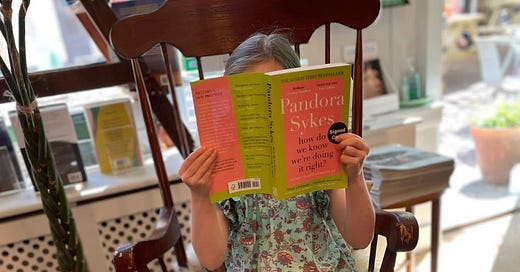


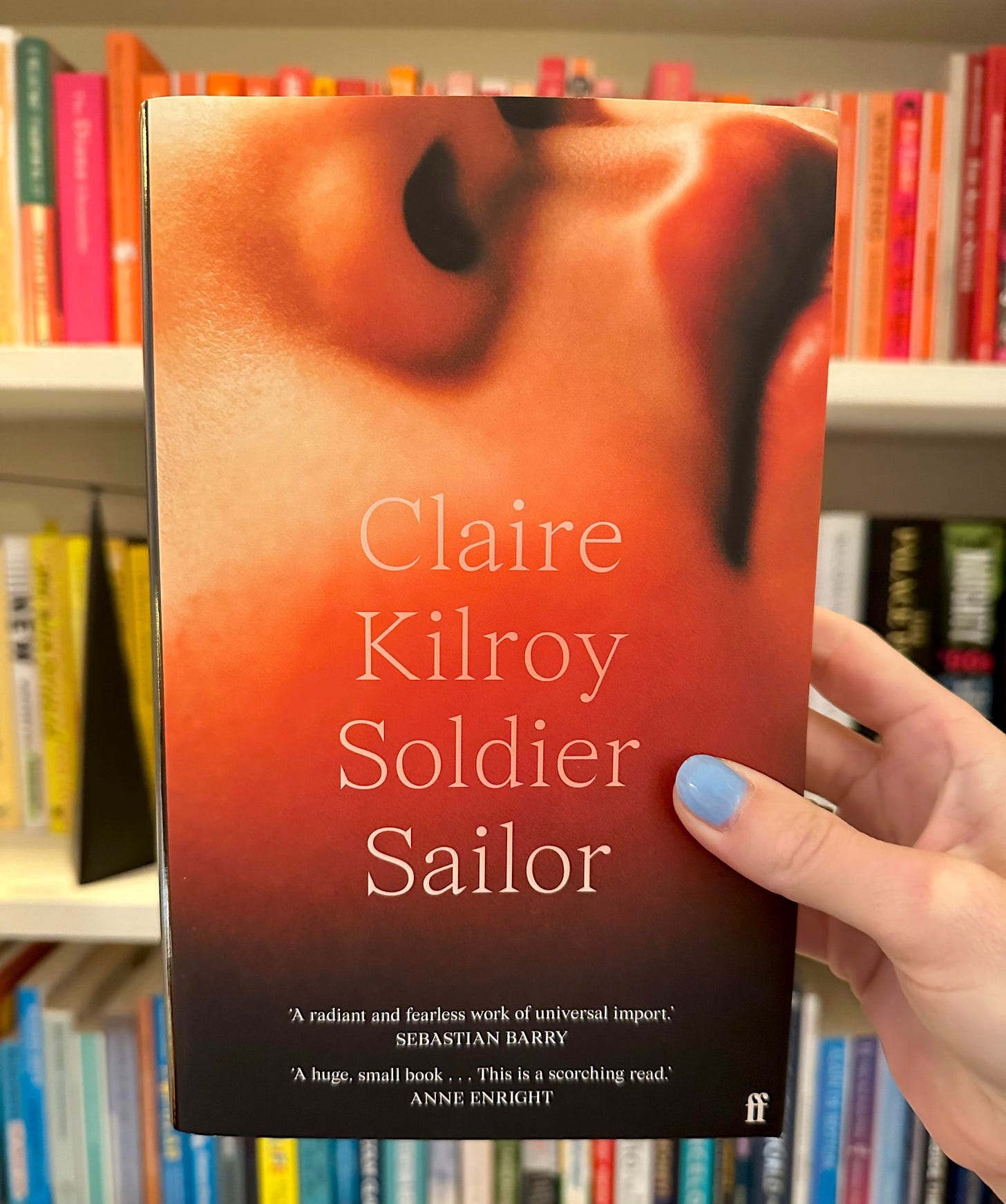

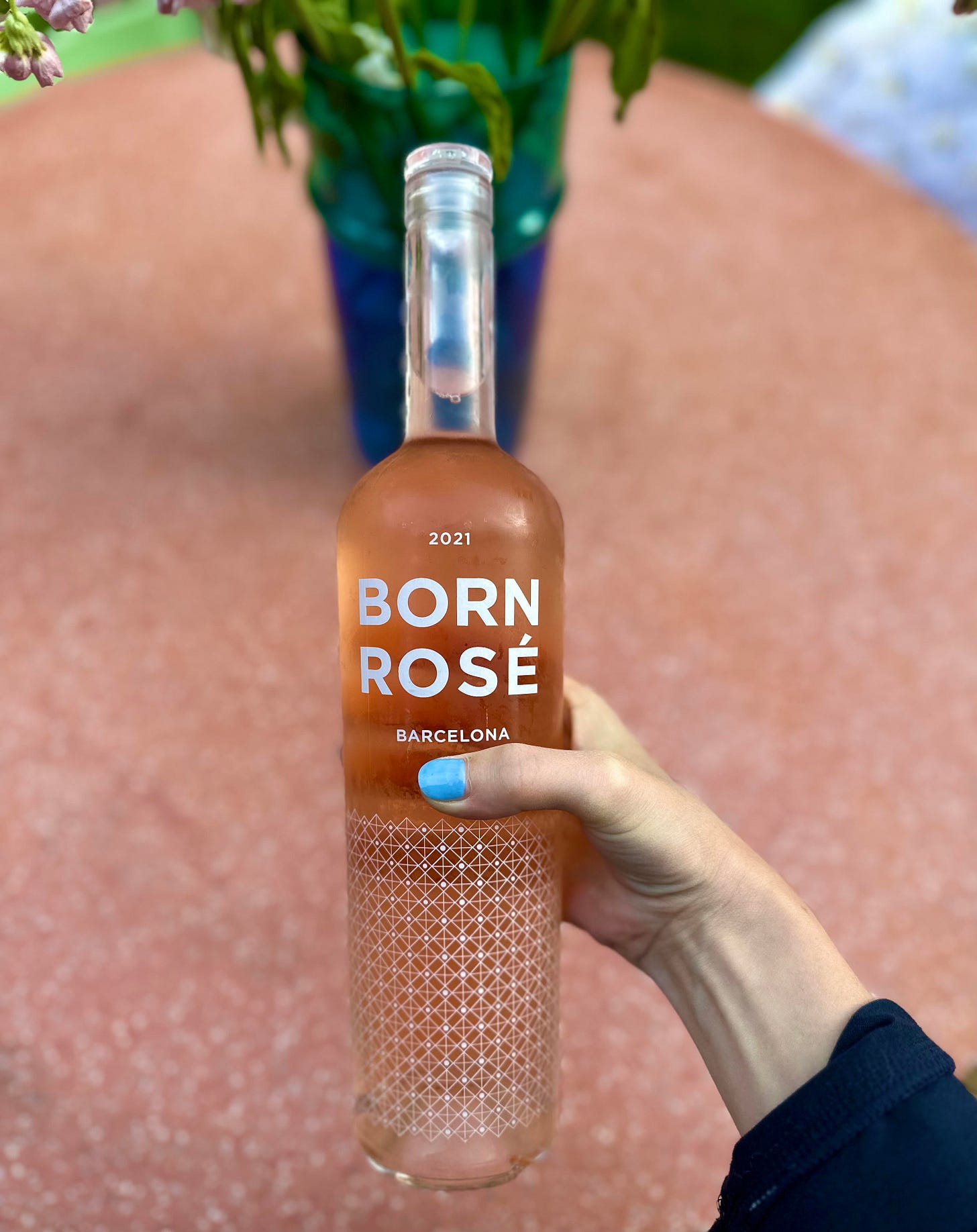

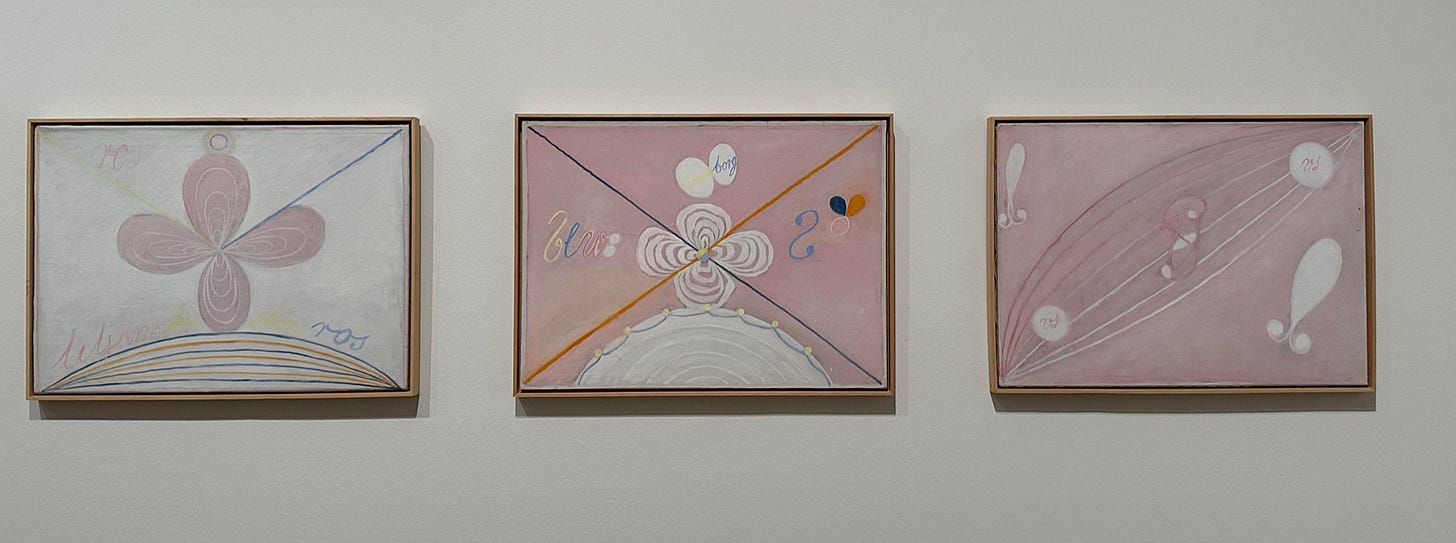

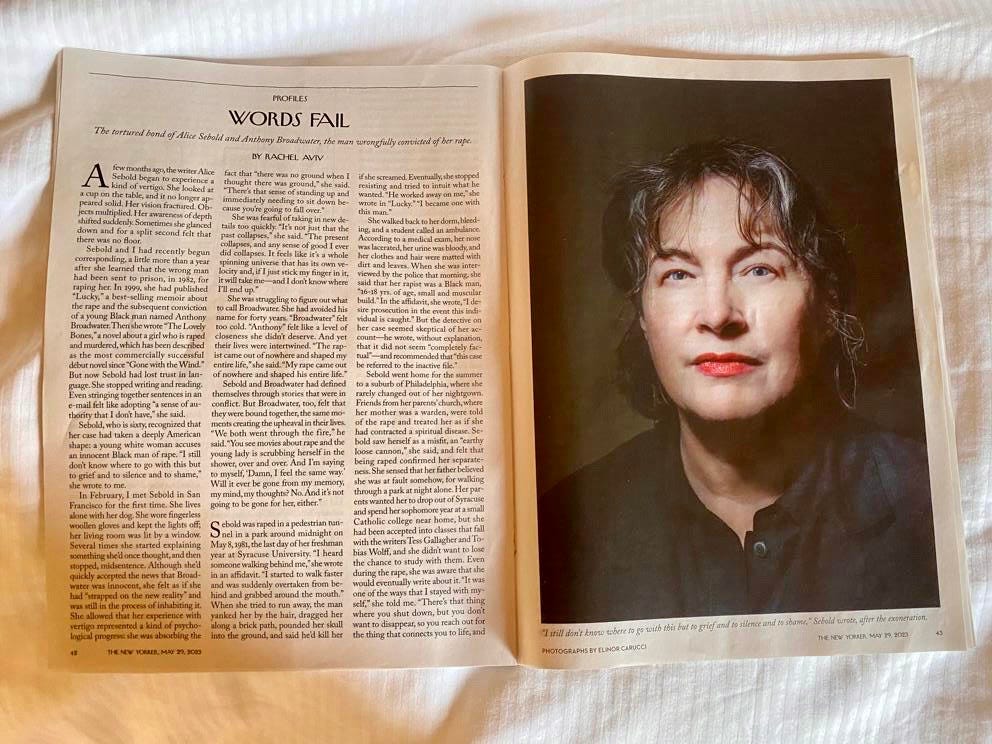
Have spotted an extremely irritating typo: that should read HILMA af Klint!
Thank you for this list! I look forward to reading the upcoming books ❤️ I want to add ESSENTIAL LABOR by Angels Garbes to the list. It’s re-shaped my mothering.